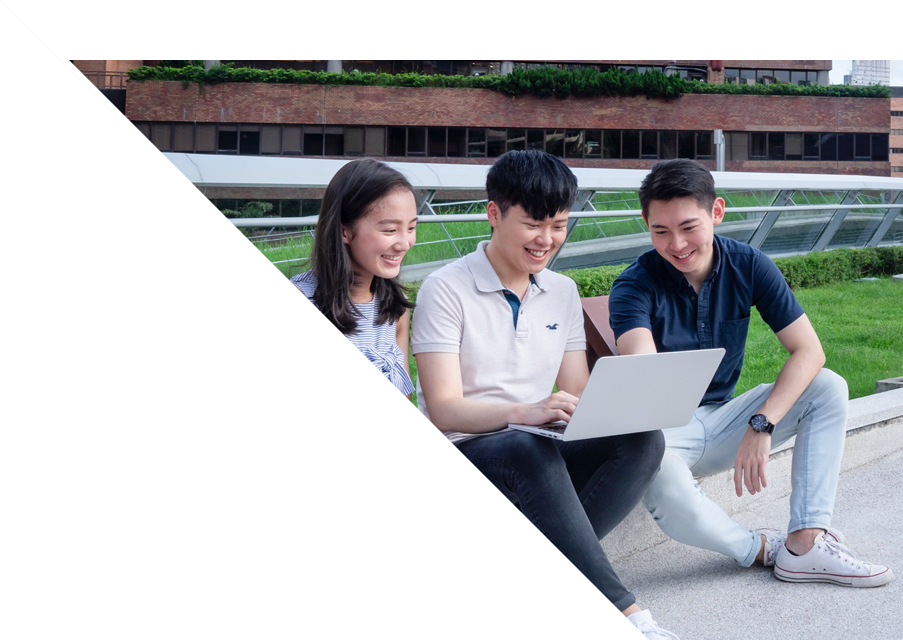Sept 2026 Entry
2 years
91
We have a limited quota for admissions. Early applications are strongly encouraged.
Early Round: 2025-10-15
Main Round: 2026-01-15
Extended Round: 2026-04-30
Early Round: 2025-10-15
Main Round: 2026-01-15
Extended Round: 2026-04-30
What's New

- Undergraduate

- Undergraduate
Programme Aims
The programme strives to equip students with comprehensive theoretical knowledge and practical skills necessary to practice as entry-level diagnostic radiographers. It emphasises the following areas:
-
Fundamental Knowledge:
Students will gain an in-depth understanding of the core subjects underpinning medical imaging theories and clinical skills.
-
Practical Abilities:
We foster the development of hands-on skills essential for conducting and interpreting medical imaging procedures.
-
Professional Development:
We prepare students to provide responsible patient care by honing their communication, psychosocial, and professional abilities. This includes holistic care for patients and carers, ensuring effective collaboration with patients, peers, and the broader community. Additionally, students will develop essential data literacy and empowerment skills to effectively use data in clinical decision-making, research, and enhancing patient care.
-
Critical Thinking & Innovation
The course cultivates:
-
Independent decision-making and problem-solving in clinical scenarios
-
The capacity to connect learned concepts
-
A holistic understanding of a radiographer's role within the wider healthcare landscape
-
Lifelong Learning & Research
We encourage a commitment to continuous learning, acknowledging the evolving nature of the field. The programme also introduces students to research as both a tool for profession advancement and a pathway to further education and qualifications.
Programme Overview
The Master of Medical Imaging programme is designed to offer foundational education and training in medical imaging. Our goal is to nurture diagnostic radiographers skilled in top-tier medical imaging services, research engagement, and problem-solving in clinical practice. We also emphasise holistic care and the development of data literacy and empowerment skills, equipping our graduates to provide comprehensive patient care and effectively utilise data in their professional roles.
The clinical practicum, a pivotal part of the curriculum, is facilitated through Hospital Authority departments. Over the programme’s 2-year span, students gain 1,344 hours of hands-on clinical experience. This extensive clinical training is mandatory for accreditation by the Hong Kong Radiographers Board. Per government ordinance, this accreditation is essential for Radiographer (Category: Diagnostic) roles in Hong Kong.
Dedicated clinical educators and mentors from medical imaging departments collaborate with our university’s academic team, ensuring rigorous student supervision. Distinct learning objectives, tailored to align with the evolving clinical learning phases, are set for each specific clinical block. To evaluate student performance holistically, we have implemented a structured assessment system that encompasses progress reports, problem-based learning activities, clinical assessments, and objective-structured clinical examinations (OSCE), capturing cognitive, psychomotor, and interpersonal proficiencies.
Graduates are eligible for registration in Part II of the Register of the Radiographers Board of Hong Kong.^ Locally registered radiographers with the Radiographers Board are also recognised by many overseas registration bodies, including those in the UK, Singapore, New Zealand and Australia (after gaining 1 year of clinical experience).*
Our graduates can find employment with the Hospital Authority, which recognises the degree as an entry qualification. Employment opportunities are also available in private hospitals, clinics, laboratories, and the commercial sector.
^ Accreditation is pending approval by the Radiographers Board of Hong Kong upon the graduation of the first batch of graduates in 2026.
* Subject to policy changes of the overseas registration bodies in respective countries
This is a Master’s programme leading to professional registration. Accumulation of 91 credits (19 credits from foundation and 47 credits from professional subjects, 24 credits from clinical practicum, and 1 credit from Academic Integrity and Ethics subject) is required for graduation. The curriculum satisfies the accreditation standards for local Part II radiographer (Category: Diagnostic) registration.
Foundation Subjects
- Clinical and Applied Physiology
- Diagnostic Radiology Physics
- Foundations in Medical Imaging Science
- Imaging and Applied Anatomy
- Pathology for Medical Imaging
- Radiation Biology
Professional Subjects
- Advanced Medical Imaging Informatics
- Clinical Skills in Diagnostic Imaging
- Diagnostic Imaging Instrumentation
- Diagnostic Imaging Studies I
- Diagnostic Imaging Studies II
- Diagnostic Imaging Studies III
- Essential Computed Tomography
- Essential Magnetic Resonance Imaging
- Essential Vascular & Interventional Radiology
- Healthcare Research and Informatics
- Innovations in Research and Services
- Legal and Ethical Issues for Healthcare Professions
- Medical Ultrasonography
- Nuclear Medicine
- Radiation Safety & Protection
Clinical Practicum
- Clinical Practicum I
- Clinical Practicum II
- Clinical Practicum III
- Clinical Practicum IV
91
Programme Leader
Prof. Shara LEE, Associate Professor
PhD, MSc (Cardiol), BSc Hons (1st), FHKCRRT, SFHEA
Deputy Programme Leader
Mr Edward WONG, Associate Professor of Practice
MSc, BSc, PDDR, FHKCRRT (MII)
Prof. Liang-ting LIN, Associate Professor
PhD
-
A Bachelor’s degree in sciences, preferably physics, biological sciences or health-related disciplines from PolyU or a recognised institution. Other qualifications may be considered on an individual basis.
-
Preference will be given to applicants who are able to communicate effectively in English and Cantonese.
-
Preference will be given to applicants who have obtained credits for each of the following prerequisite undergraduate-level courses before admission to the programme.
-
Human Physiology (3 credits or equivalent)
-
Human Anatomy (3 credits or equivalent)
-
If you are not a native speaker of English, and your Bachelor's degree or equivalent qualification is awarded by institutions where the medium of instruction is not English, you are expected to fulfil the University’s minimum English language requirement for admission purpose. Please refer to the "Admission Requirements" section for details.
For further programme information, please contact:
The General Office (tel: (852) 3400 8578; email: hti.tpg@polyu.edu.hk)
or visit our website at https://www.polyu.edu.hk/hti/study/programmes/taught-postgraduate-programmes_list/
Suitable candidates will be invited to attend interviews.
Please click here to download.
HK$8,600 per credit for local and non-local students
(Note: There is no tuition charge for the 1-credit AIE subject.)
Required
Required



